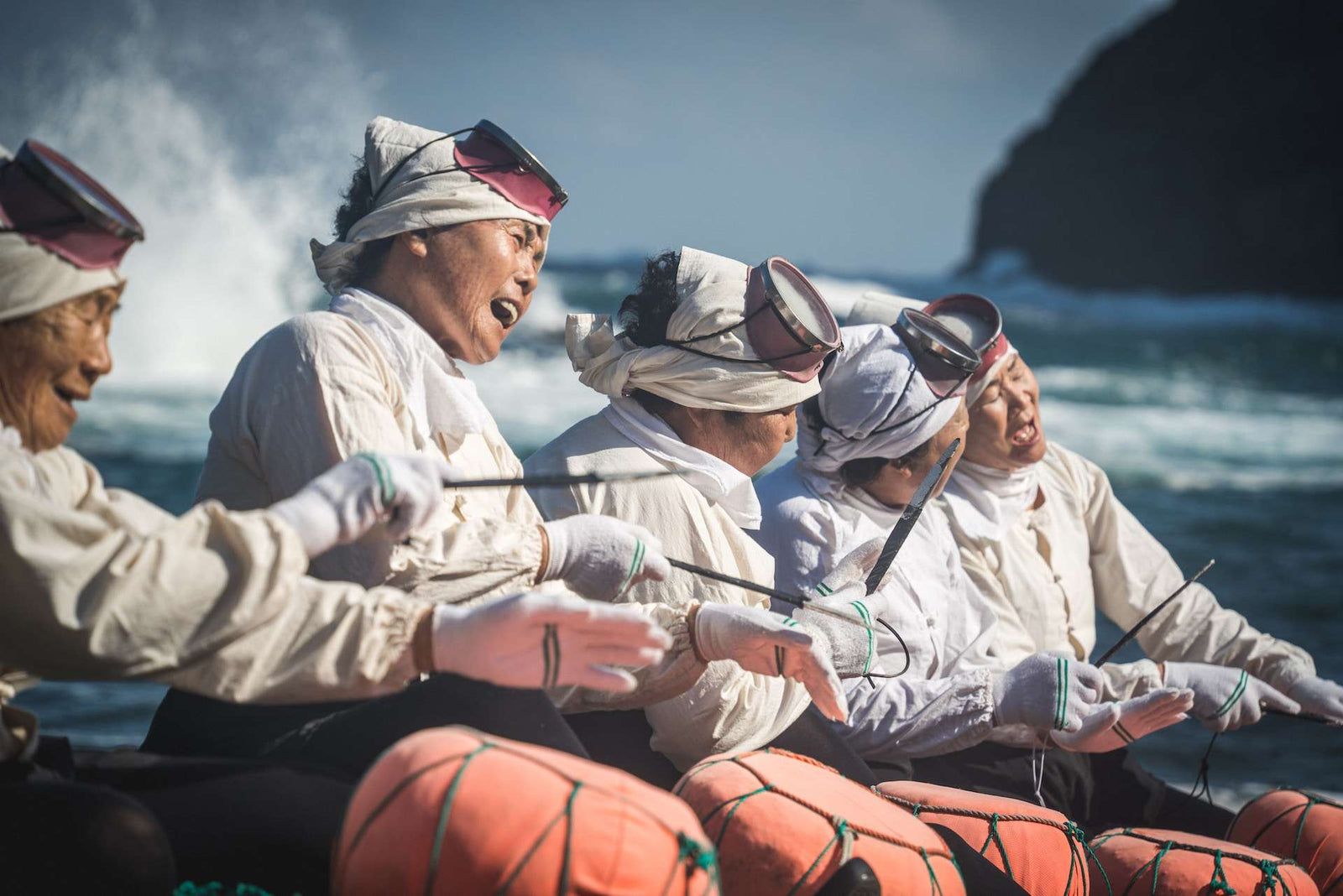L'apnée, pratique consistant à plonger sous l'eau en inspirant une seule fois, a une histoire riche et fascinante. Des civilisations antiques aux compétitions modernes, l'apnée a captivé l'imagination des gens du monde entier. Dans cet article de blog, nous explorerons l'histoire de l'apnée, de ses débuts à ses champions actuels. Nous examinerons également de plus près deux histoires fascinantes du monde de l'apnée : les pêcheurs de perles du golfe Persique et les dernières plongeuses de Jeju.
L’histoire de l’apnée remonte à des milliers d’années, dans des civilisations antiques comme les Grecs et les Romains. Ces cultures étaient connues pour leurs exploits sous-marins, notamment la plongée aux éponges et la récolte de perles. Mais c’est au Japon que l’apnée a été documentée pour la première fois. Les Ama, ou « femmes de la mer », étaient un groupe de plongeuses qui récoltaient des perles et des fruits de mer au fond de l’océan. Ces plongeuses retenaient leur souffle pendant plusieurs minutes à la fois, plongeant souvent à des profondeurs de 30 mètres ou plus.
Au Moyen-Orient, la pêche aux perles était une industrie majeure du XIXe siècle jusqu'à la découverte de pétrole dans la région au XXe siècle. Les pêcheurs de perles plongeaient dans les profondeurs du golfe Persique, en utilisant uniquement une ceinture lestée et un pince-nez pour retenir leur souffle pendant deux minutes à la fois. C'était une profession dangereuse, les plongeurs étant exposés aux risques d'attaques de requins, de noyade et de maladie de décompression. Malgré les dangers, la pêche aux perles était un mode de vie pour de nombreuses personnes dans la région, fournissant une source de revenus vitale pour les familles.

L’une des histoires les plus fascinantes de l’histoire de l’apnée est celle des Haenyeo, ou « femmes de la mer », de l’île de Jeju en Corée du Sud. Depuis des siècles, ces femmes plongent dans les eaux glacées de la mer Jaune pour récolter des algues, des ormeaux et d’autres fruits de mer. Comme les Ama du Japon, les Haenyeo retiennent leur souffle pendant plusieurs minutes et plongent à des profondeurs allant jusqu’à 20 mètres. Pendant des générations, ce métier s’est transmis de mère en fille, les jeunes filles commençant leur formation dès l’âge de 11 ans.
Aujourd’hui, il reste très peu de Haenyeo qui pratiquent encore la plongée, et seules quelques centaines de femmes continuent de récolter activement les ressources marines. En 2016, l’UNESCO a reconnu leur culture et leurs traditions en les ajoutant à la liste du patrimoine culturel immatériel de l’humanité. La plupart des Haenyeo restantes ont entre 70 et 80 ans et leur nombre continue de diminuer à mesure que les jeunes générations optent pour d’autres professions. Mais pour celles qui continuent de plonger, c’est un mode de vie dont elles sont extrêmement fières.
Ces dernières années, l'apnée est devenue un sport de compétition de plus en plus populaire. Des athlètes du monde entier s'affrontent dans des disciplines comme le poids constant, où ils plongent à une profondeur spécifique et remontent à la surface par leurs propres moyens, et l'apnée dynamique, où ils nagent aussi loin que possible sous l'eau en une seule respiration dans une piscine. Ces compétitions ont donné lieu à certains des exploits les plus impressionnants en matière d'endurance et d'habileté humaines, avec des records régulièrement battus.
Mais l’apnée ne se résume pas seulement à la compétition et aux records. C’est aussi un moyen de se connecter à l’océan et d’explorer ses profondeurs de manière plus naturelle. Les apnéistes parlent souvent de la tranquillité et de la beauté du monde sous-marin, ainsi que du sentiment de ne faire qu’un avec l’océan. Pour beaucoup, c’est une expérience spirituelle qui ne peut être reproduite d’aucune autre manière.
L’histoire de l’apnée est riche et variée, remplie de récits fascinants d’endurance et de courage humains. Des pêcheurs de perles du golfe Persique aux dernières plongeuses de Jeju, l’apnée a joué un rôle essentiel dans de nombreuses cultures à travers le monde. Aujourd’hui, c’est un sport en plein essor qui continue de repousser les limites de ce que les humains sont capables d’accomplir. Cependant, il est important de se rappeler que l’apnée n’est pas seulement un sport, mais aussi un moyen de se connecter à l’océan et d’explorer ses profondeurs d’une manière plus naturelle et plus intime. C’est un rappel de la beauté et de la fragilité du monde sous-marin, et de l’importance de le protéger pour les générations futures.
Que vous soyez un apnéiste de compétition ou que vous aimiez simplement explorer l'océan, il y a quelque chose de vraiment spécial dans le fait de plonger dans les profondeurs d'un seul souffle. C'est un témoignage de la puissance du corps humain et de l'esprit d'aventure qui nous pousse à explorer l'inconnu.
Alors, la prochaine fois que vous contemplerez l’océan, prenez un moment pour réfléchir à la riche histoire de l’apnée et aux incroyables prouesses de l’endurance humaine qui ont fait de cette discipline ce qu’elle est aujourd’hui. Et qui sait, vous pourriez même être inspiré à franchir le pas et à découvrir le monde sous-marin par vous-même.

